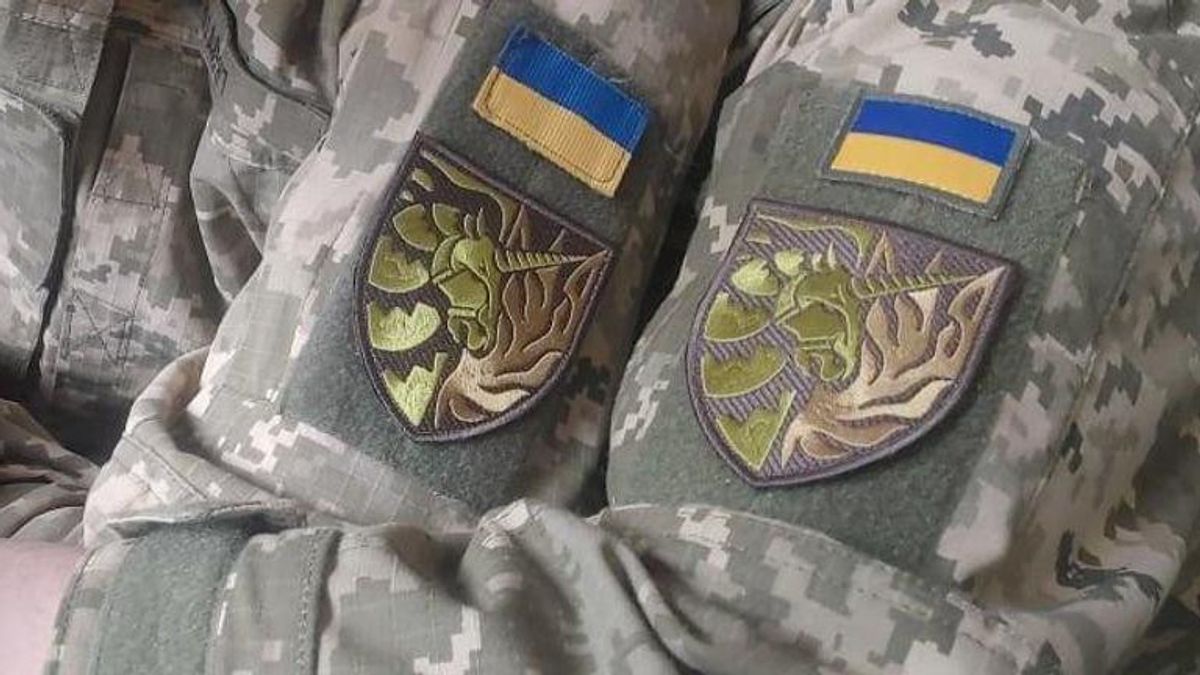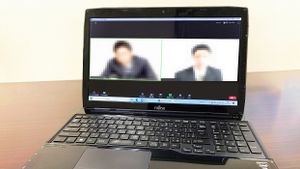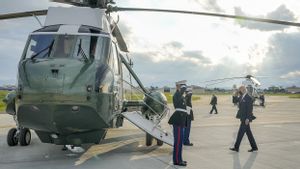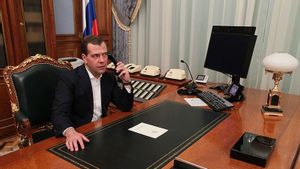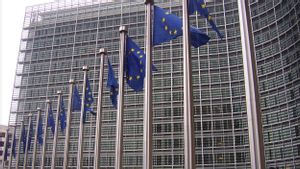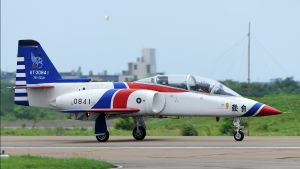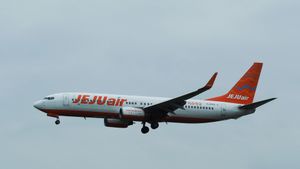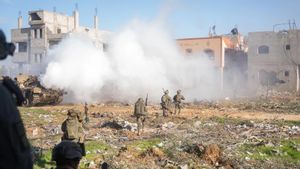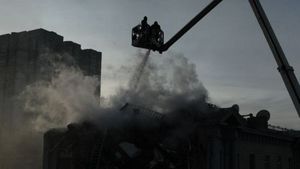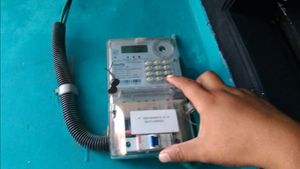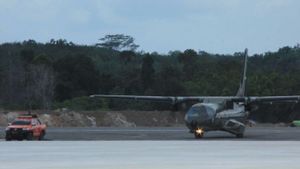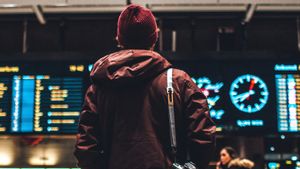JAKARTA - Reluctant to just hide or even run away, this Ukrainian LGBTQ couple chose to fight to take up arms against the Russian invasion, accepted by their comrades in arms.
As volunteer fighters Oleksandr Zhuhan and Antonina Romanova prepare to return to active duty, they ponder the unicorn emblem that gives their uniforms a rare distinction, a symbol of their status as an LGBTQ couple who are Ukrainian soldiers.
Members of Ukraine's LGBTQ community who signed up for war have stitched images of mythical beasts into their standard troop or unit emblem, just below the national flag.
The practice harks back to the 2014 conflict, when Russia invaded and then annexed the Crimean Peninsula from Ukraine, "when many people said there were no gay people in the army," actor, director and drama teacher Zhuhan told Reuters as he and Romanova prepared their uniforms for rotation. their second three-month battle, reported May 31.
"So they (the lesbian, gay, bisexual, transgender, and queer community) chose unicorns because it's like a fantastic unreal creature," he said.
Zhuhan and Romanova, who identify as non-binary with male/female pronouns, moved to the capital from Crimea after being transferred in 2014, meeting through their theatrical work.
No one is trained in the use of weapons. However, after spending several days hiding in the bathroom at the start of the war, they decided they had to do more.
"I just remember that at some point it became clear we had only three options: hide in a bomb shelter, escape and get out of here, or fight to join the (volunteer) Territorial Defense. We chose the third option," Romanova said.
Russia says its forces are on a special operation to demilitarize Ukraine, ridding it of radical anti-Russian nationalists. Ukraine and its allies have called it a false pretext for a war of aggression.
For Zhuhan and Romanova, the call to fight for Ukraine gave them an added sense of responsibility.
"Because what the Russians are doing is they don't just take our territory and kill our people. They want to destroy our culture. We can't let this happen," Zhuhan said.
The couple's first time assignment around Mykolaiv in southern Ukraine, about 135 km (80 miles) from the port of Odesa, changed their lives. They fought in the same unit and found it scary, Zhuhan had pneumonia, but, the couple said. Meanwhile, their fellow fighters accepted this pair.
"No aggression, no intimidation. It was a bit unusual for the others. But, over time, people started calling me Antonina, some even using my pronouns," said Romanova.
There was a lot of slap as they joined their new unit at Kyiv central station for a second three-month stint. Some of Zhuhan and Romanova's team knew about it, but the commanders weren't at the station.
"I'm a little worried about that," he said, the atmosphere becoming more gloomy as the unit headed for their carriage as dusk fell.
VOIR éGALEMENT:
"I know that in some units, the rules are stricter, not like that in our (first) unit," he said.
Zhuhan's anxiety escalated when a commander explained his refusal to tolerate homophobia, while a more senior officer said the only important thing on the front line was being a good fighter.
However, one main fear was voiced again by them.
"The thing I'm worried about is, if I get killed during this war, they won't let Antonina bury me as I want," Zhuhan said.
"They would rather let my mother bury me with a priest reading prayers. But I'm an atheist and I don't want that."
The English, Chinese, Japanese, Arabic, and French versions are automatically generated by the AI. So there may still be inaccuracies in translating, please always see Indonesian as our main language. (system supported by DigitalSiber.id)
